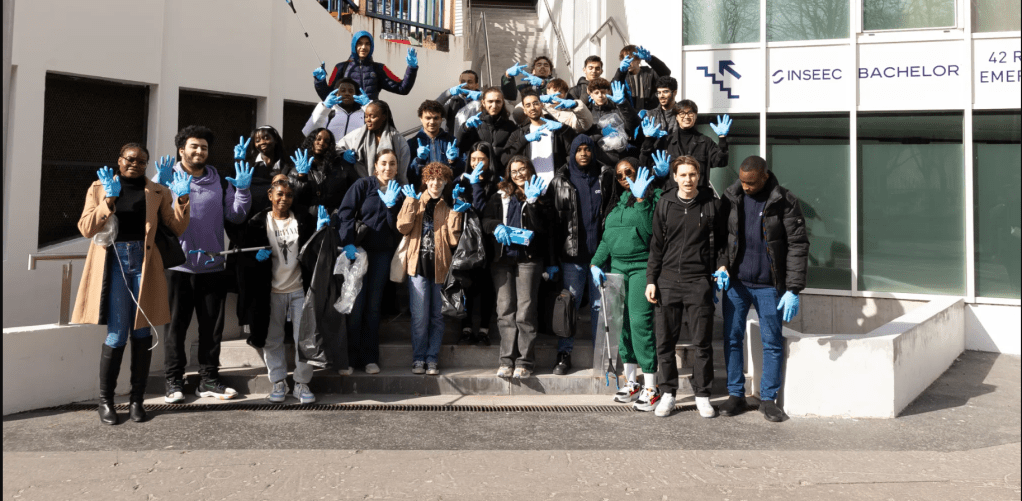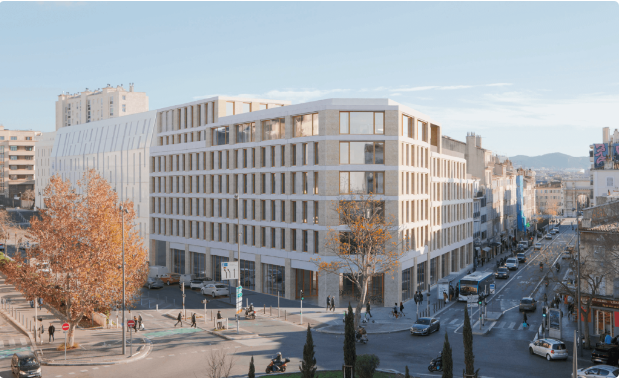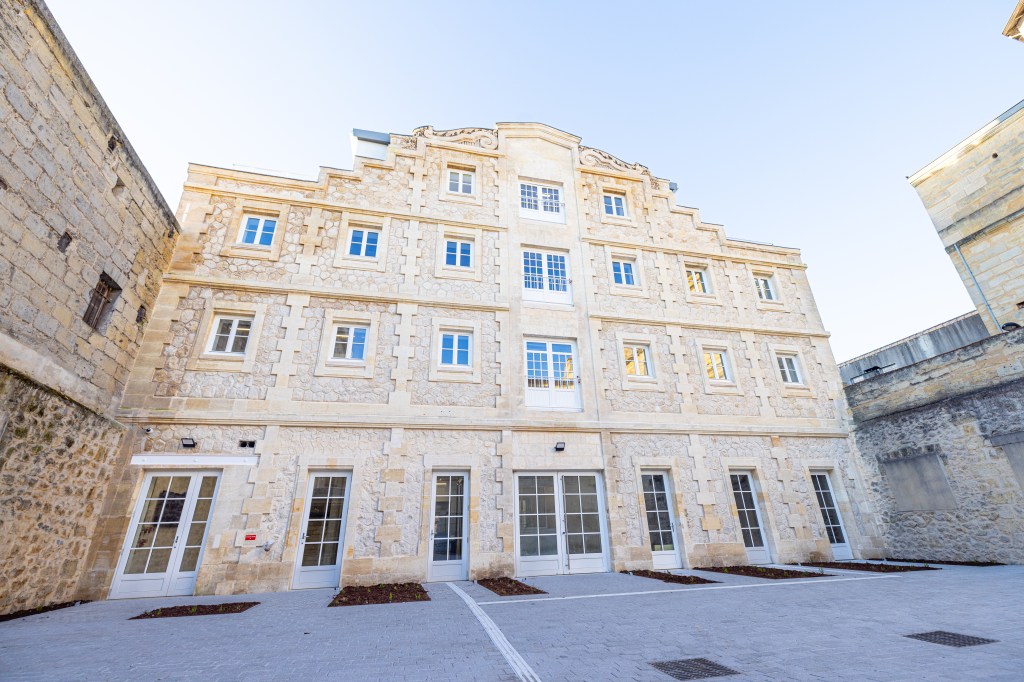OBJECTIVES
Committing to the #decarbonation of our activities, aiming for Net Zero by 2050. The Group has set up a #transition plan, including 53 targeted actions to reduce its GHG emissions by 2.5% annually. A #carbon committee made up of key decision-makers, launched in February 2024, oversees the deployment of this plan on scopes 1, 2 and 3.
100%
zero plastic campuses
100%
of our suppliers committed to CSR
2.5 %
annual reduction in GHG emissions
Sustainability & Decarbonation
The Campus, as a place of student life integrated into society, must be exemplary in terms of environmental responsibility. We integrate sustainable management practices in several key areas: energy management, waste management, zero plastic, water conservation, cigarette butt recycling, digital use, catering, purchasing and mobility. We deploy an action plan for campuses that are integrated into their territory, inclusive and sober, and we measure progress annually.
In addition, based on the results of our carbon footprint, we have drawn up an ambitious transition plan to achieve our goal of -2.5% CO2 emissions per year and ‘ Net Zero’ by 2050. This plan targets the main sources of emissions in order to reduce our carbon footprint and protect biodiversity, involving key departments and the entire OMNES Education community.

biodiversity
In this new year, preserving biodiversity is becoming a major issue on our campuses. Aware of the importance of taking action for our environment, we are placing this issue at the heart of our CSR actions.
Our employees and students play a central role in this approach. That’s why we’re setting up training and awareness-raising initiatives on each of our campuses, to help them better understand the issues and become agents of change…
- Actions on the Bordeaux and Chambéry campuses: A team of employees committed to concrete biodiversity initiatives
- Employee and student training: Programs dedicated to raising awareness and providing training on biodiversity issues
- Access to biodiversity pathways: Opportunity to access specific pathways focused on preserving and enhancing biodiversity.

Digital Responsibility

The digital sector accounts for 2.5% of France’s carbon footprint and 17% of that of our Group. Aware of this impact, we have implemented a Group-wide responsible digital charter to reduce this footprint. This charter encourages more sustainable digital practices by prioritizing efficiency, sustainability, inclusion and security.
- Responsible digital use: digital eco-gesture guide and resource kit distributed to all campuses, with participation in “Digital Clean up Day” to reduce data storage.
- Systematic reuse and recycling of equipment, with collection points for small items.
- Choice of equipment with a high reparability index and purchase of reconditioned equipment.
- Extending the lifespan of IT infrastructures and hardware.
- Assured protection against cyber attacks and for our personal data
100% of the appliances collected are reused and/or recycled.
Energy
The Group’s carbon footprint, carried out at the end of 2022, shows thatOMNES Education campuses stand out for their energy efficiency, with 82% of their energy consumption coming from renewable sources. To reinforce this performance and support our commitment to decarbonization, we have implemented several concrete actions:
- Adoption of sustainable solutions such as 100% LED lighting and the installation of automatic detectors.
- Integrating energy performance clauses into our contracts.
- Renovating buildings to improve their energy performance.
- Implementation of a building management system to monitor energy consumption.

low-carbon mobility

We are strengthening our low-carbon mobility policy by implementing several measures to promote sustainable business travel:
- Awareness-raising and incentives: Introduction of a “sustainable mobility” package offering a bonus for the purchase of a bicycle and a free public transport pass for employees.
- Development of teleworking: Promote teleworking to reduce commuting.
- Mobility plan for each campus: Draw up a specific mobility plan for each campus to optimize travel.
- The Group has beena signatory of CANIE ( Climate Action Network for International Educators) since 2024 to lower our carbon footprint linked to the international mobility of our students.
RESPONSIBLE PURCHASING
OMNES Education is committed to evaluating and challenging its suppliers on social, environmental and societal aspects. As a responsible player, we ensure the integrity of our entire value chain.
- Give preference to local, responsible suppliers: reduce the environmental impact of transport and adopt CSR labels or standards.
- CSR Charter and questionnaire: our service providers demonstrate that they reduce their social and environmental impact, respect human rights, promote access to employment, and assess their environmental footprint.

WASTE MANAGEMENT
A variety of initiatives are being launched to raise environmental awareness and promote waste reduction:
- Participation in the European Week for Waste Reduction (EWWR) on the Lyon and Paris campuses
- Recycling garbage cans for at least three streams on all campuses
- Zero plastic campus: elimination of plastic water bottles and disposable cups, with the installation of water fountains to encourage the use of water bottles.
- Installation of bottle deposit systems in Bordeaux and Paris.
- Recycling cigarette butts on the Bordeaux and Lyon campuses.

OMNES Education’s new campuses committed to environmental innovation

Marseille Campus
The new Marseille campus, scheduled for completion in 2026, embodies innovation and ecological sustainability. As the first demonstrator of the “build with earth” program, it adopts a low-carbon, circular economy approach. Built with recycled cement by BCorp-accredited company REDMAN, the campus stands out for its ecological innovations.

Bordeaux Campus
The extension of the Bordeaux Chartrons campus is an innovative example of sustainability, combining the rehabilitation of a historic building with modern ecological practices.

Campus de la Defense
The La Défense campus stands out for its innovative and sustainable approach. By combining modern facilities with eco-responsible practices, it creates an advanced learning environment while minimizing its environmental impact. It incorporates efficient management solutions for water, energy and waste, making it a model of sustainability in the heart of the business district.


